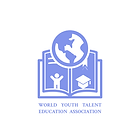.png)
2026 World Youth Essay Competition

IMPORTANT TIMELINE:
Registration Deadline:14-01-2026
Submission Deadline:15-01-2026
Announcement Date:23-01-2026
Registration Fee
Free
Nature of the Competition
Global Call
Age Categories
-
Preschool Group (3-5 years)
-
Young Children Group (6-7 years)
-
Children Group (8-9 years)
-
Pre-Teens Group (10-11 years)
-
Teenagers Group (12-13 years)
-
Youth Group (14-15 years)
-
Young Adults Group (16-18 years)
-
Open Group (19 years and above)
Submission Format
-
Works can be submitted through website upload, WhatsApp, Email, etc.; only one submission method is needed.
-
Please name the work according to the competition requirements.
Awards
-
Champion — 90 points or above
-
Runner-up — 80 points or above
-
Third Place — 70 points or above
-
Excellence Award — Remaining scorers
Competition Awards for Mentors and Groups
⭐ Excellence Mentor Award
⭐ Outstanding Group Award
Competition Content
-
Participants can adopt diverse essay styles, including but not limited to argumentative, narrative, expository, and creative writing. They may submit independent works, collaborative essays (with 2-3 co-authors), themed series essays, or works combined with multimedia elements (short illustrations, audio narration, etc.) to showcase personal thinking and creativity, with essential writing techniques like logical reasoning, vivid description, rhetorical devices (metaphors, parallelism), and structural coherence to be demonstrated—academic essays require adhering to citation standards, while creative works allow innovative narrative approaches. For submission tools, participants may use the competition’s specified document templates (in Word/PDF format) or design their own layouts (meeting readability/size requirements); reference materials (for research-based essays) and outline drafts (for organizing ideas) are also permitted to enhance content depth and structural clarity.
-
Participants must submit high-quality document files that clearly present the full essay content, including complete paragraphs, logical transitions, detailed arguments/explanations, and standardized formatting (font, spacing, citations)—key writing techniques (narrative twists, persuasive reasoning, vivid character portrayal) should be distinct, and a brief cover page (name, age, essay title, word count) is required. Formats are limited to DOC/DOCX/PDF, with file size not exceeding [50] MB (adjustable per actual needs), and participants should review documents to ensure top readability and content accuracy for judging.
Competition Rules
1、Originality: All entries must be completed independently by the participant. No submissions of others' works are allowed. Participants may use their own previous competition works.
2、Content Restrictions: All entries must not contain obscene, violent, sexual, defamatory, inappropriate, or controversial content. Violation of this rule will result in disqualification without prior notice.
3、Personal Data Use: Personal information provided by participants will only be used for competition contact purposes and to distribute competition notifications.
4、Accuracy of Information: Participants must ensure that their personal information is accurate. The organizers will not be responsible for any errors.
5、Acceptance of Terms: By submitting their entries, participants agree to all competition terms and conditions. The organizers reserve the right to disqualify any participant believed to have violated any competition rules, and there will be no appeals process.
Scoring Criteria
-
Essay Content and Structure: The overall structure of the essay is reasonable. Whether it is an independent work, collaborative essay, themed series, or a work combined with multimedia elements, the arrangement of each content section (introduction, body, conclusion, supporting details) is appropriate. The proportions of arguments, evidence, narrative plots, and supplementary elements (if any) are accurate, with no obvious issues of structural imbalance. The progression of the content follows a logical order, and the transitions between different sections (such as from thesis presentation to evidence analysis in argumentative essays, or from scene setting to plot development in narrative works) are natural, smooth, and tightly connected.
-
Content Depth and Expression: The essay’s core theme (whether critical, reflective, or imaginative) paired with supplementary elements (if any) is cohesive, and the overall content is rich in layers. Based on the essay’s theme and purpose, appropriate expression methods are employed. For example, ideological depth is conveyed through logical layers (such as from specific cases to general conclusions, subtle shifts in argument angles), and key content moments are emphasized through expression contrasts (like the clarity of factual statements versus the vividness of descriptive language, the formality of academic discussions versus the vividness of creative narration). The transition of content style between different sections or paragraphs is natural and smooth, enhancing the overall reading experience.
-
Mastery of Writing Techniques and Abilities: The author’s writing is natural and expressive. They demonstrate mastery of various writing techniques, including language control abilities (such as accurate word choice, smooth sentence flow, consistent tone), application of special techniques (like rhetorical devices, narrative structures, citation methods), and collaborative coordination (for co-authored works). These techniques are applied skillfully and superbly, reflecting a high level of writing. Whether handling complex argumentative logic, detailed narrative plots, emotional expression, or standardized academic formatting, the author maintains excellent control and precision.
-
Ideological Appeal and Emotional Resonance: The author has a profound understanding of the essay’s theme and can fully integrate their own viewpoints and emotions into the writing. The work is engaging and thought-provoking, capable of evoking strong emotional or ideological resonance from the readers—whether it is the rigor and depth in academic essays, the warmth and empathy in narrative works, or the imagination and innovation in creative writing. Their expression of core ideas (such as clear viewpoint presentation, sincere emotional conveyance, innovative thinking demonstration) and interpretation of the theme’s connotation are also important considerations. The work leaves a deep and lasting impression, effectively conveying the ideological value and emotional core that the essay intends to express through skilled writing techniques and sincere expression.
Group Registration Form
For groups of 4 or more members, please click the link below to access the group registration form. After filling it out, send it to us via WhatsApp or email.
For subsequent group entries, the group leader should name the works according to the competition requirements and submit all entries of the participants at once via WhatsApp or email.Entry Name: Name of Contestant - Age Group.【EG:Chan Ka Ming - Primary Group】